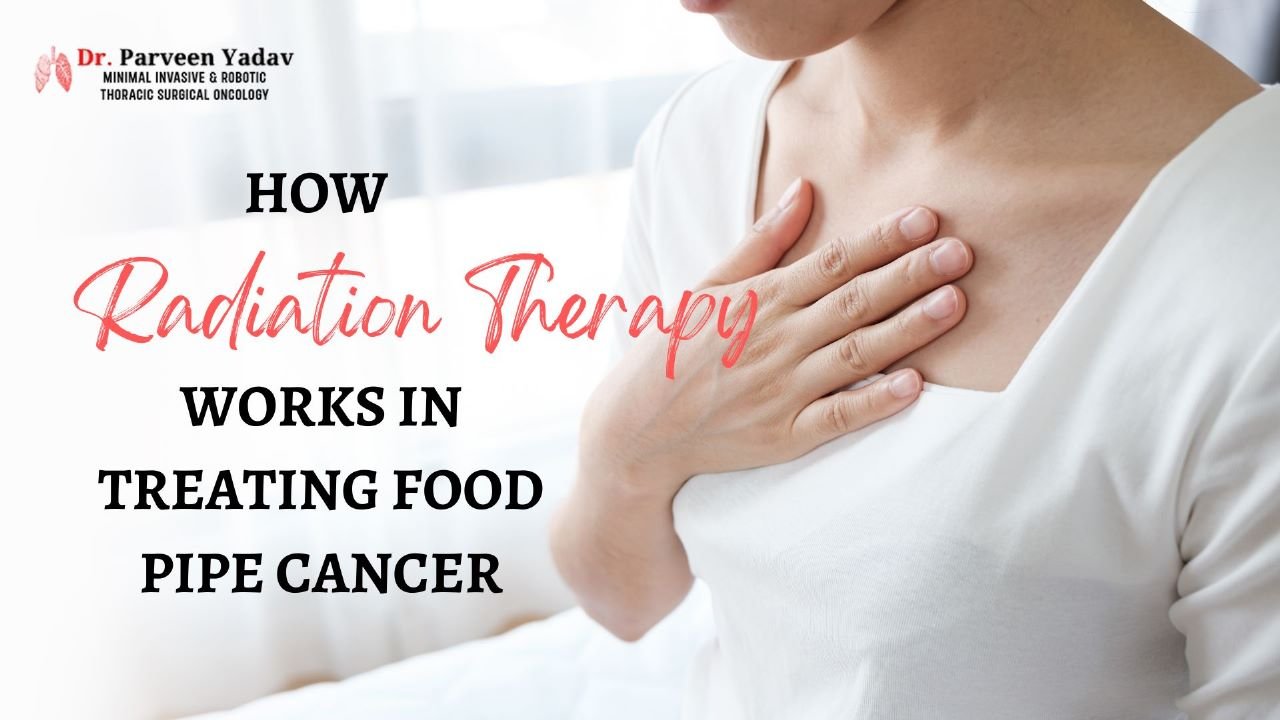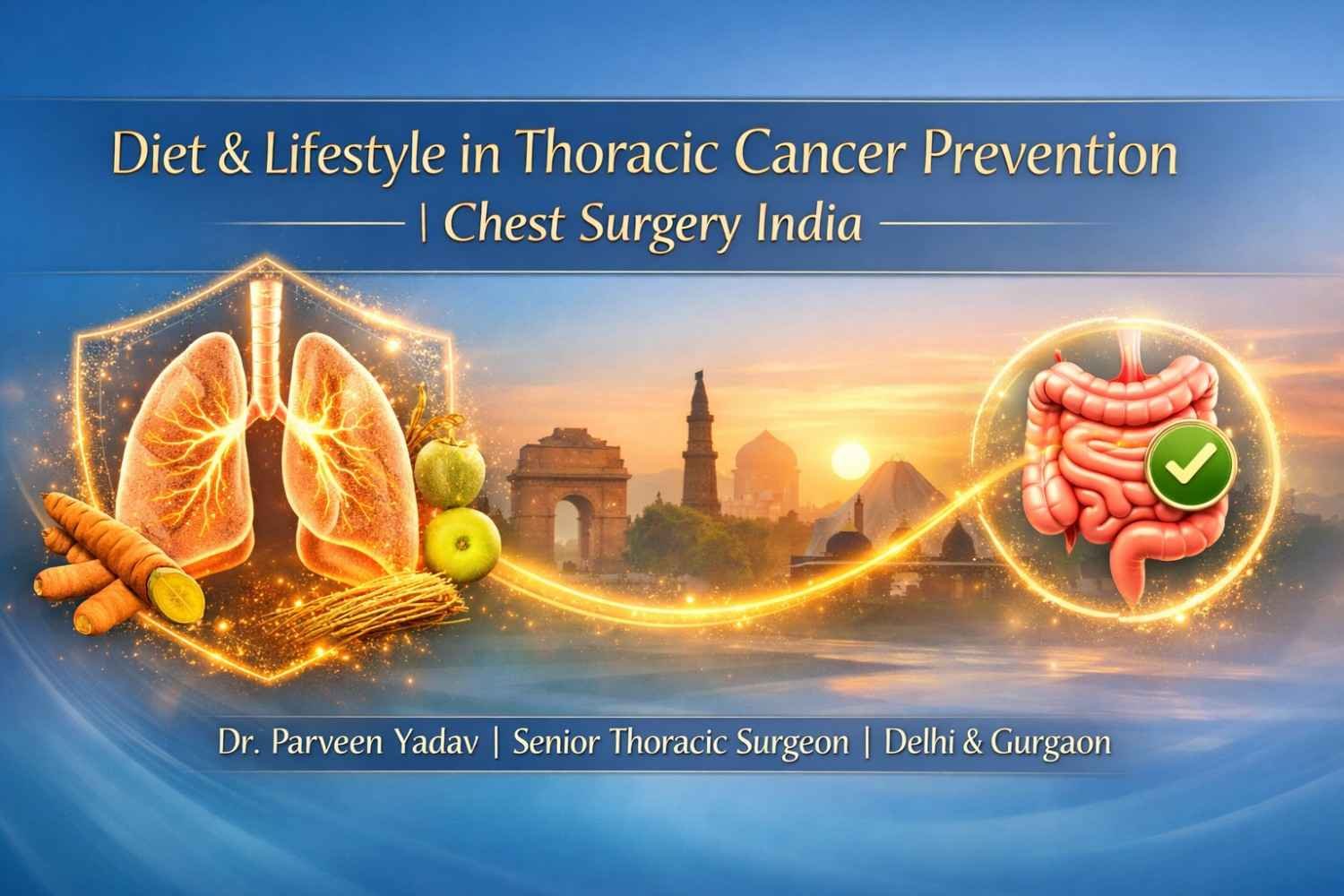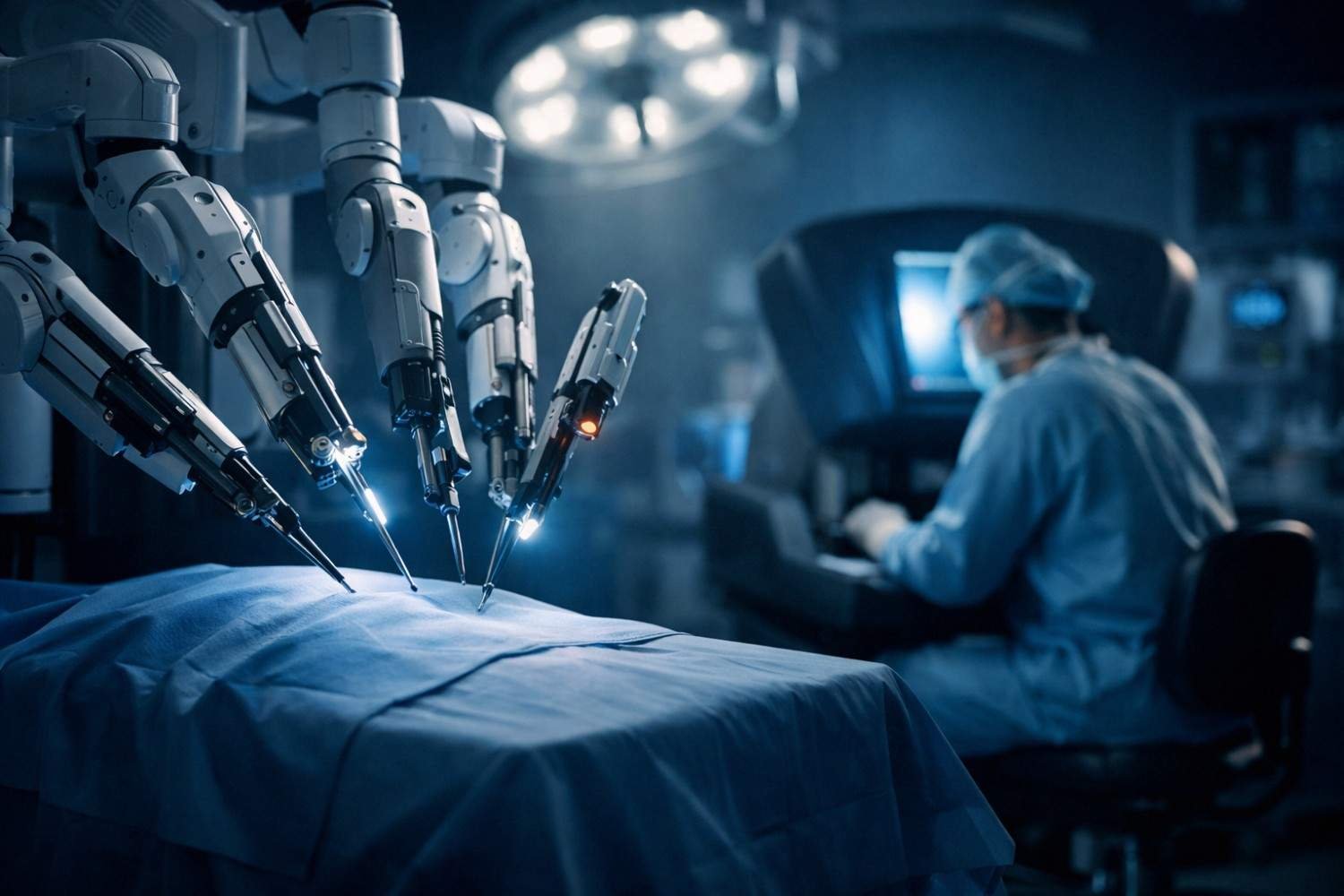

The importance of the food pipe as an integral organ cannot be denied. The muscular tube helps you swallow food and carry it to the stomach. Any complication in its function can lead to serious implications. One such implication is food pipe cancer.
What Is Food Pipe Cancer?
Also known as esophageal cancer, food pipe cancer is the cancer developing in the tissue of your esophagus. It is caused when mutated cells keep dividing uncontrollably, forming a tumor that damages your food pipe. If not diagnosed and treated, esophageal cancer can have life-threatening implications.
Food pipe cancer is the 10th most common cancer in the world. In most cases, the cancer is detected only at a later stage as the symptoms are often ignored by the patients. However, once you get a hint of complications within your food pipe, make sure you approach the best oncologist in your city. If you live in Delhi, look for the best esophageal cancer treatment in Delhi for effective diagnosis and treatment.
There are different ways in which the esophageal cancer can be treated, one of them being radiotherapy. However, let us briefly understand the symptoms of food pipe cancer before getting to its treatment.
What Are The Symptoms Of Esophageal Cancer?
Here are some of the most common esophageal cancer symptoms that should prompt you to seek the best esophageal cancer treatment in Delhi:
Difficulty swallowing
Also known as dysphagia, this is the most common symptom of esophageal cancer. Initially, people may have difficulty swallowing solid foods, and later, they may have trouble swallowing liquids as well.
Chest Pain Or Discomfort
Esophageal cancer can cause pain or discomfort in the chest, especially when swallowing.
Unexplained Weight Loss
People with esophageal cancer may experience unexplained weight loss, which can be a sign that the cancer is advanced.
Regurgitation
This is a symptom where food or liquid comes back into the mouth after swallowing.
Heartburn
People with esophageal cancer may experience frequent heartburn, which is a burning sensation in the chest.
Hoarse Voice Or Cough
Esophageal cancer can cause a chronic cough or hoarseness that does not go away.
Vomiting
In advanced stages of esophageal cancer, people may experience vomiting, which can lead to dehydration and malnutrition.
Fatigue
Esophageal cancer can cause fatigue and weakness due to the body's increased energy demands to fight the cancer.
Radiation Therapy To Treat Food Pipe Cancer
Also known as radiotherapy, radiation therapy is a common esophageal cancer treatment procedure that involves destroying the tumor with high-energy radiation. Oncologists may recommend radiotherapy as a stand-alone treatment, or along with surgery/chemotherapy, depending on the cancer stage they are dealing with.
Here are a few important aspects to consider regarding the process of radiation therapy to treat food pipe cancer:
Initial Planning
Before the radiotherapy treatment, a team of healthcare professionals, including a radiation oncologist, a radiation therapist, and a medical physicist, will develop a treatment plan.
This plan involves using imaging tests, such as CT scans and PET scans, to determine the precise location and shape of the cancer and surrounding tissues. The goal is to deliver a high dose of radiation to the cancer cells while minimizing the radiation exposure to healthy tissues.
Delivery Of Treatment
Radiotherapy is typically delivered using a machine called a linear accelerator. During treatment, the patient lies on a table, and the machine delivers the radiation to the cancer cells. The patient will be positioned carefully to ensure the radiation is delivered to the correct location.
Types Of Radiotherapy
There are two main types of radiotherapy used in the treatment of esophageal cancer: external beam radiotherapy and brachytherapy.
Side Effects Of Radiotherapy
Radiotherapy can cause side effects, including fatigue, nausea, difficulty swallowing, and skin irritation. These side effects are usually temporary and can be managed with medication and supportive care. Rarely can radiotherapy cause long-term side effects, such as scarring of the esophagus and radiation-induced cancer.
Monitoring
Once radiation therapy is performed, the patient will be monitored regularly to ensure the treatment is effective and to manage any side effects. Imaging tests, such as CT scans and PET scans, will be used to evaluate the response to treatment and monitor for any signs of recurrence.
Other Esophageal Cancer Treatment Procedures
Apart from radiation therapy, here are a few other procedures used to treat esophageal cancer:
Surgery
Surgery is often the first line of treatment for early-stage esophageal cancer. The goal of surgery is to remove the tumor and a margin of healthy tissue around it. Depending on the location of the tumor, the surgeon may remove a portion of the esophagus (esophagectomy) or the entire esophagus (total esophagectomy). In some cases, the surgeon may also remove nearby lymph nodes to check for the spread of cancer cells.
Chemotherapy
Chemotherapy is a treatment that uses drugs to kill cancer cells. Chemotherapy can be used alone or in combination with other treatments, such as surgery and radiation therapy. Chemotherapy can be given before surgery (neoadjuvant chemotherapy) to shrink the tumor and make it easier to remove or after surgery (adjuvant chemotherapy) to kill any remaining cancer cells.
Targeted Therapy
Targeted therapy is a treatment that uses drugs to target specific molecules that are involved in the growth and spread of cancer cells. Targeted therapy is used in some cases of advanced esophageal cancer.
The Final Word
These were some major aspects worth considering regarding the treatment of esophageal cancer. Any damage to the food pipe should be taken seriously without ignoring signs that may lead to issues like cancer. Even if you experience a minor symptom, as discussed above, approach a trusted doctor in your city to get yourself treated.

18+ Yrs Exp | 5,700+ Thoracic & Robotic Cancer Surgeries
Dr. Parveen Yadav is a Director and Senior Consultant in Thoracic and Surgical Oncology, specializing in minimally invasive and robotic lung and esophageal surgeries, with advanced training from AIIMS and Tata Memorial Hospital.
View Full Profile Pain After Thoracic Surgery: Tips for Smooth Recovery
Pain After Thoracic Surgery: Tips for Smooth Recovery
 Diet & Lifestyle for Thoracic Cancer Prevention | Dr. Parveen Yadav
Diet & Lifestyle for Thoracic Cancer Prevention | Dr. Parveen Yadav
 Robotic Thoracic Surgery: How Da Vinci Technology is Revolutionizing Chest Procedures
Robotic Thoracic Surgery: How Da Vinci Technology is Revolutionizing Chest Procedures
Struggling with pain after chest surgery? Dr. Parveen Yadav shares expert recovery tips, causes of shoulder pain, PTPS signs, and what your discharge sheet won't tell you.
Discover how diet, breathing exercises & daily habits help prevent and recover from thoracic cancer. Expert insights from Dr. Parveen Yadav, Chest Surgery India
Discover how Da Vinci robotic surgery is transforming chest procedures in Gurgaon. Less pain, faster recovery & expert care by a certified thoracic surgeon
Copyright 2026 © Dr .Parveen Yadav all rights reserved.
Proudly Scaled by Public Media Solution!